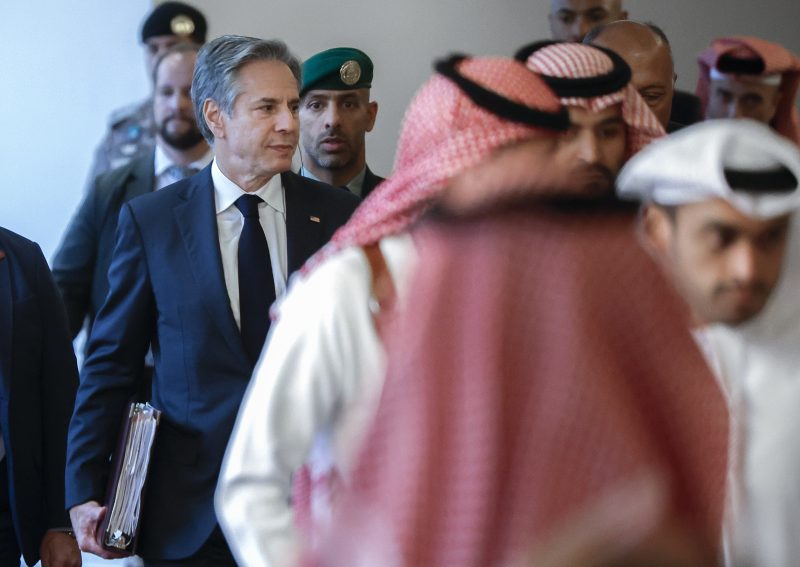
Arab Nations Hesitant as U.S. Proposes Bold Postwar Strategy for Gaza
The United States, long held as a critical mediator in Middle East affairs, has been fervently advocating for a postwar resurgence plan for Gaza; however, Arab states, traditionally perceived as strong allies of Palestine, appear reticent in offering their unbridled support for the U.S. initiated agenda. This has raised numerous questions and speculations surrounding the nature of the complex geopolitical relationships between various Middle Eastern nations, the United States and Gaza.
There is an array of reasons behind the Arab states’ hesitance to fully back the U.S. proposal for a postwar plan in Gaza. The most evident reason can be traced back to the political dynamics of Arab states. The last decade has witnessed vast political changes in the Middle East, where nations reoriented their priorities. With the emergence of new powerhouses such as Iran and Turkey and the re-emergence of nations like Saudi Arabia and Egypt in the geopolitical landscape, the Palestinian cause has somewhat been shrouded amidst the ever-intensifying regional rivalry.
There is also an escalating domestic impulse in many Arab nations to shelve external crises and focus on internal affairs. Struck by economic trials, political instability, and security threats, Arab states now place their national priorities above regional concerns, thereby compromising the traditionally unwavering Arab solidarity towards Palestine.
Another dimensions of Arab states’ reticence is their complex relationship with Hamas, the governing authority of the Gaza Strip. Over the years, relations between Hamas and many Arab governments have been marred by mistrust, hostilities, and ideological differences, resulting in palpable reluctance amongst Arab states to openly support a cause dominated by Hamas.
Compounding the problem is the lukewarm relationship between several Arab states and the U.S administration. While the former Trump administration’s unabashed bias towards Israel ruptured its relations with many Arab states, the current Biden administration’s diplomacy-first approach has yet to win back the trust of the Arab world.
Even though the U.S. postwar plan for Gaza aims at fostering economic growth and infrastructure development, Arab states may perceive it as a policy that further consolidates Israel’s strategic advantages. Moreover, without a political roadmap that guarantees a free and sovereign Palestinian state, the U.S plan risks being viewed merely as a damage control action rather than a viable solution to the decades-long Israel-Palestine conflict.
While Arab states have pledged humanitarian aid to Gaza, their wariness in embracing the U.S. political intervention clearly indicates a paradigm shift in the Middle East politics. Long gone are the days when Arab states would collectively rally behind the Palestinian cause. Today, the Arab states’ response to the Gaza issue is shaped more by domestic considerations, regional rivalries, and nuanced diplomatic relations rather than an altruistic assertion of Arab unity.
However, one thing remains clear – the reticence of Arab states in supporting the U.S. postwar plan for Gaza should not be interpreted as a diminishment of their commitment to the Palestinian cause. It instead underscores a need for a more comprehensive solution that goes beyond mere redevelopment efforts and addresses the core political issues underlying the Israel-Palestine conflict. Only then can genuine peace and stability be realized in this volatile region.
